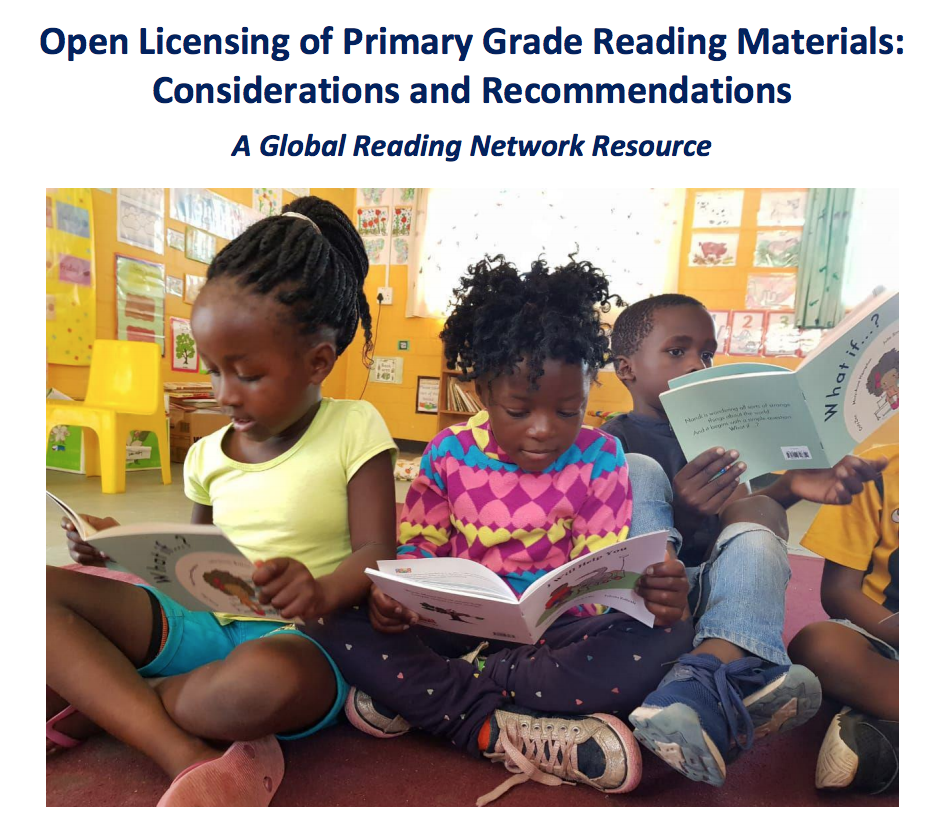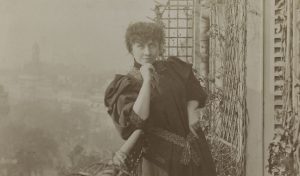This is part of a series of posts introducing the projects built by open source contributors mentored by Creative Commons during Google Summer of Code (GSoC) 2019. Mayank Nader was one of those contributors and we are grateful for his work on this project.
Creative Commons (CC) is working towards providing easy access to CC-licensed and public domain works. One significant step towards achieving that goal was the release of CC Search in 2019. Through this search and indexing tool, we’re making a plethora of CC-licensed images accessible in one place. As CC Search expands to include more than just images, CC is also developing a suite of applications and interfaces to help users across the world interact, consume, and reuse open access content.
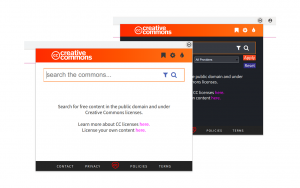
The CC Search Browser Extension is one such application. This browser extension is an open-source, lightweight plugin that can be installed and used by anyone with an updated web browser.
Why did we create this browser extension?
Browsers are the gateway to the web, and users often install browser plugins to improve productivity and overall experience. With the CC Search Browser Extension, users can now search for CC-licensed images, download them, and attribute the owner/creator without needing to head over to Flickr, Behance, Rawpixel or any other source of CC-licensed content. The other great feature? The CC Search Browser Extension works across different browsers, providing a familiar and intuitive experience for all users.
Key features of the CC Search Browser Extension:
- Search and filter CC-licensed content
You can use the extension filters to filter the content by the source website, types of licenses, and/or use-case.
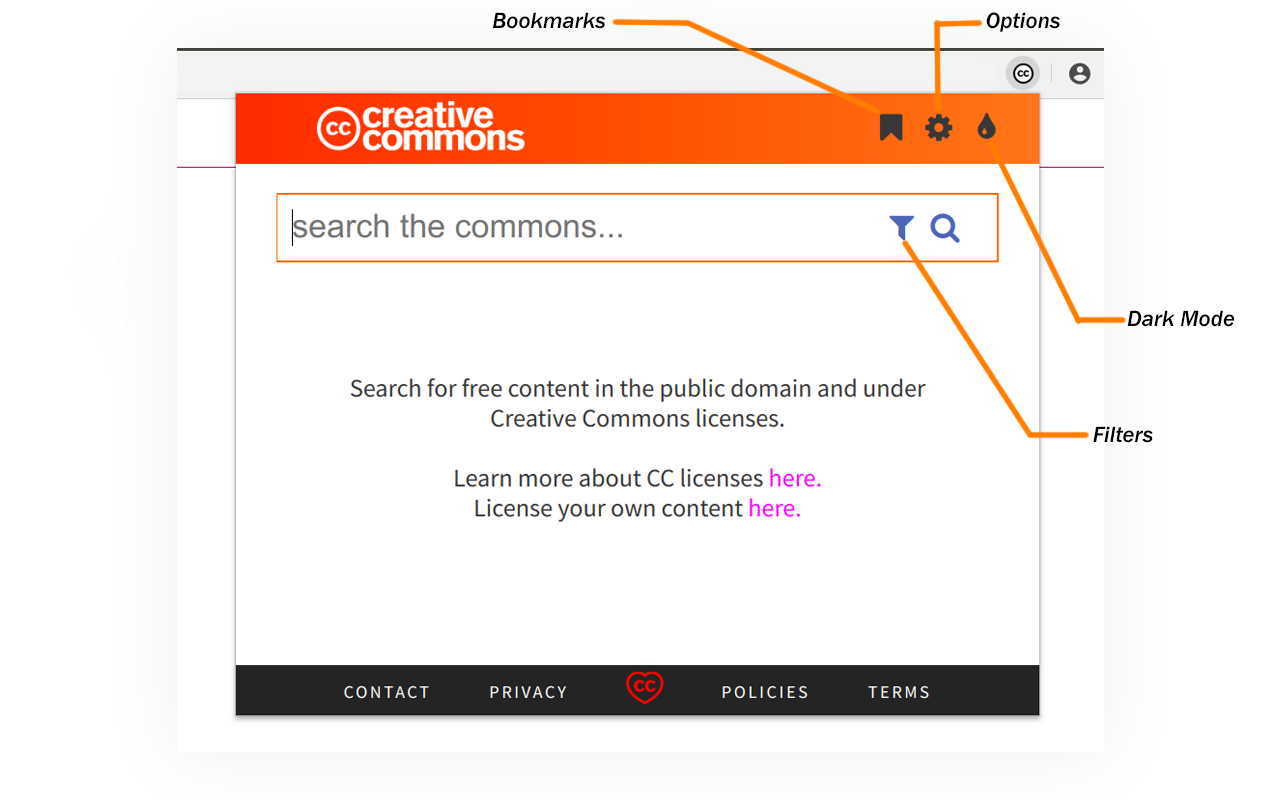
One condition of all CC licenses is attribution. Attributing the owner/creator of CC-licensed content found using the extension is easy with one-click attribution. Both the Rich-text and HTML versions of the attribution are available.
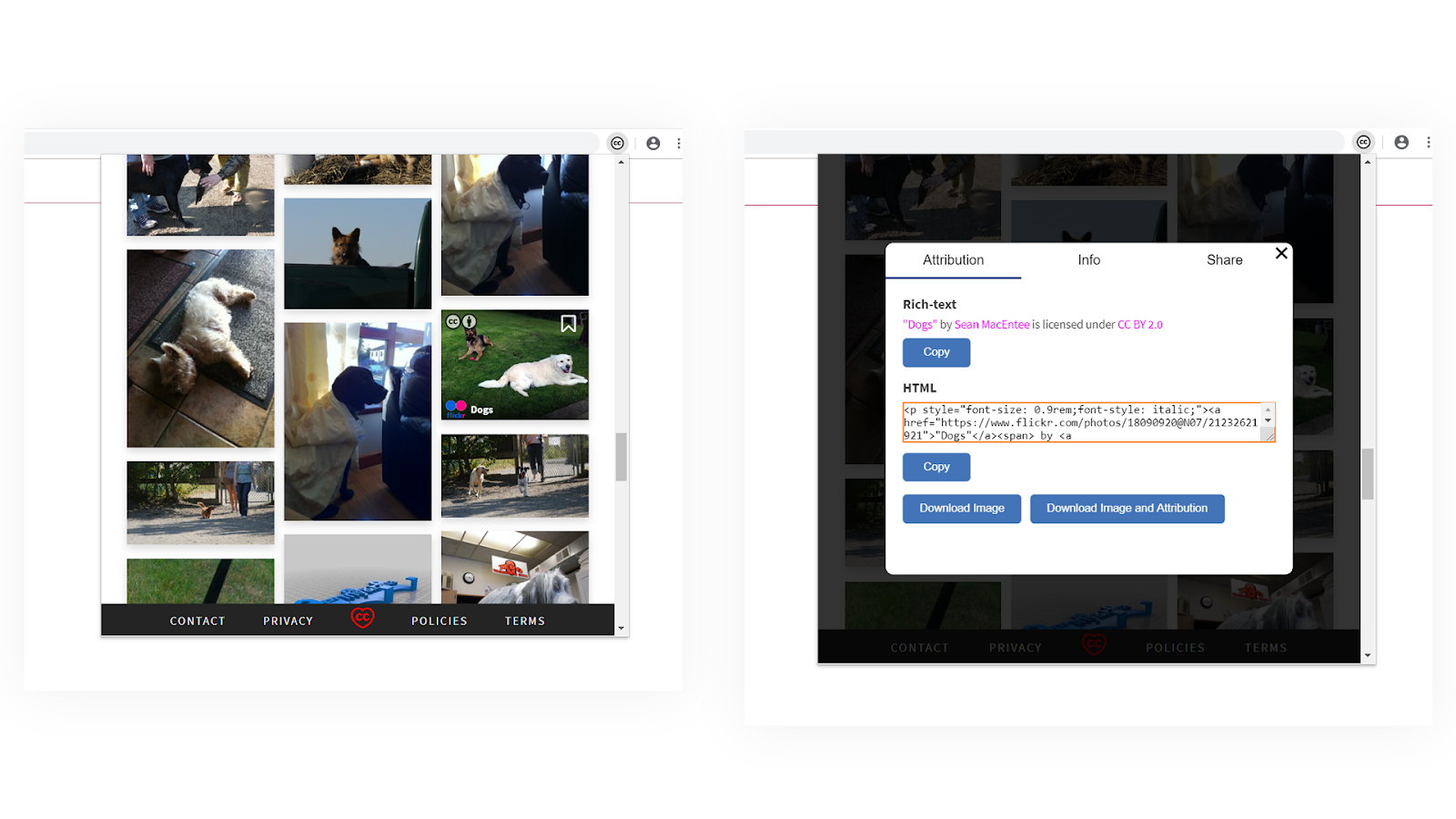
- Download images (and attribution)
Download the image to use it in your works through the extension itself. You can also download the attribution information as a text file along with the image; this can be helpful when downloading multiple images in a single session.
Bookmarking the images will save them in the extension. You can view and remove your bookmarks from the bookmarks section.
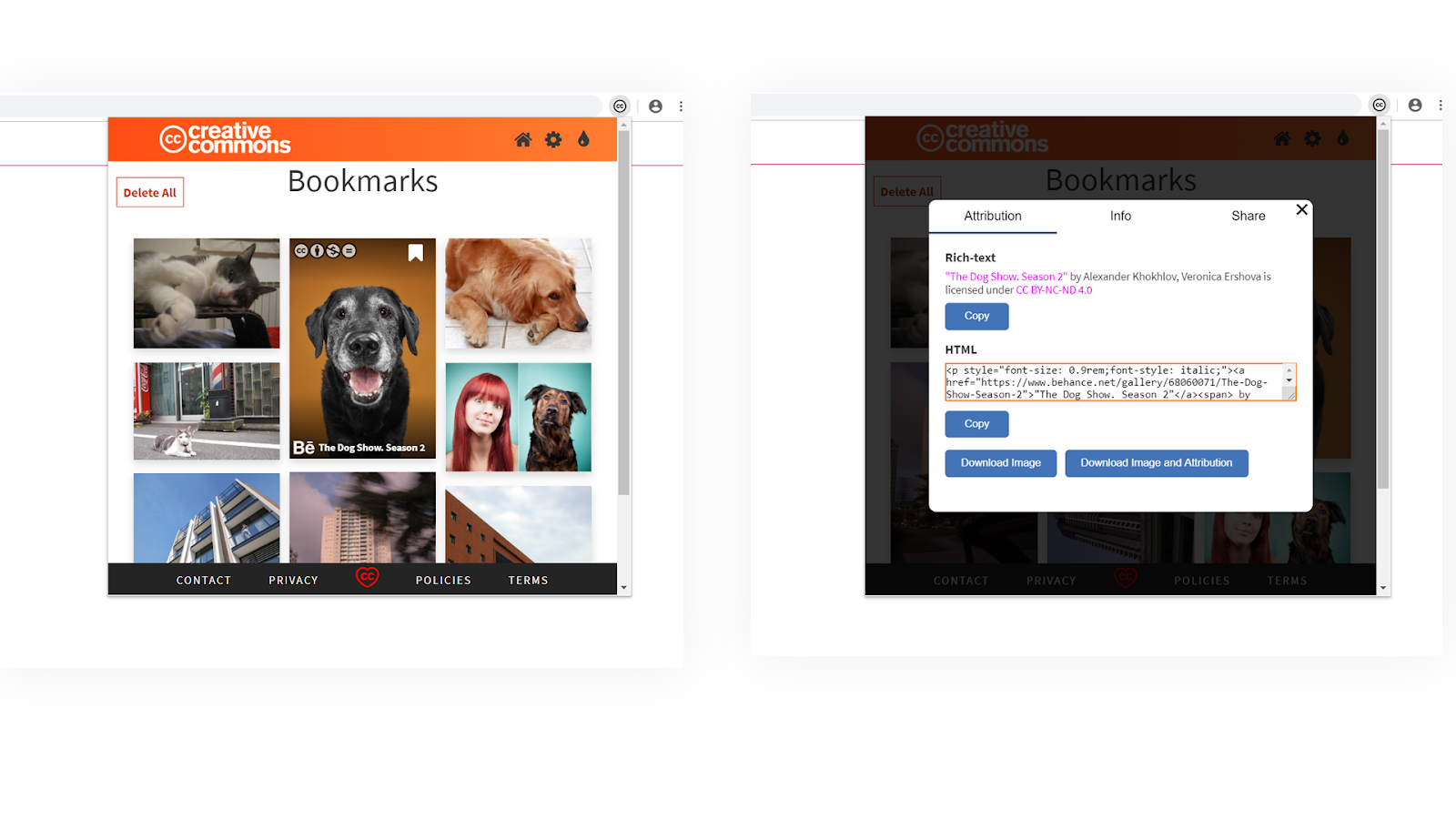
- Export and import bookmarks
As a user, you can easily archive and/or transfer your bookmarks. This feature makes sure that the process of archiving and transferring bookmarks is uncomplicated and straightforward.
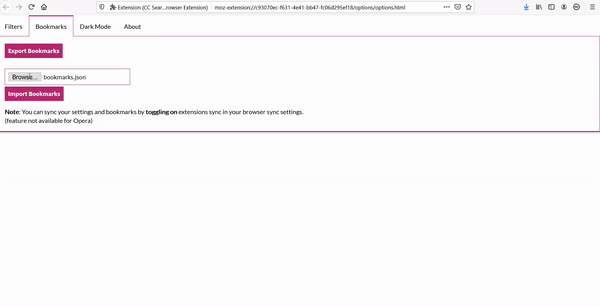
- User-interface (UI) options available for custom settings
The extension also allows for setting default filters, etc. The “Options” page helps declutter the main popup of the extension, ensuring that it shows only the most necessary information. In the future, this “Options” page will also host additional and updated features.
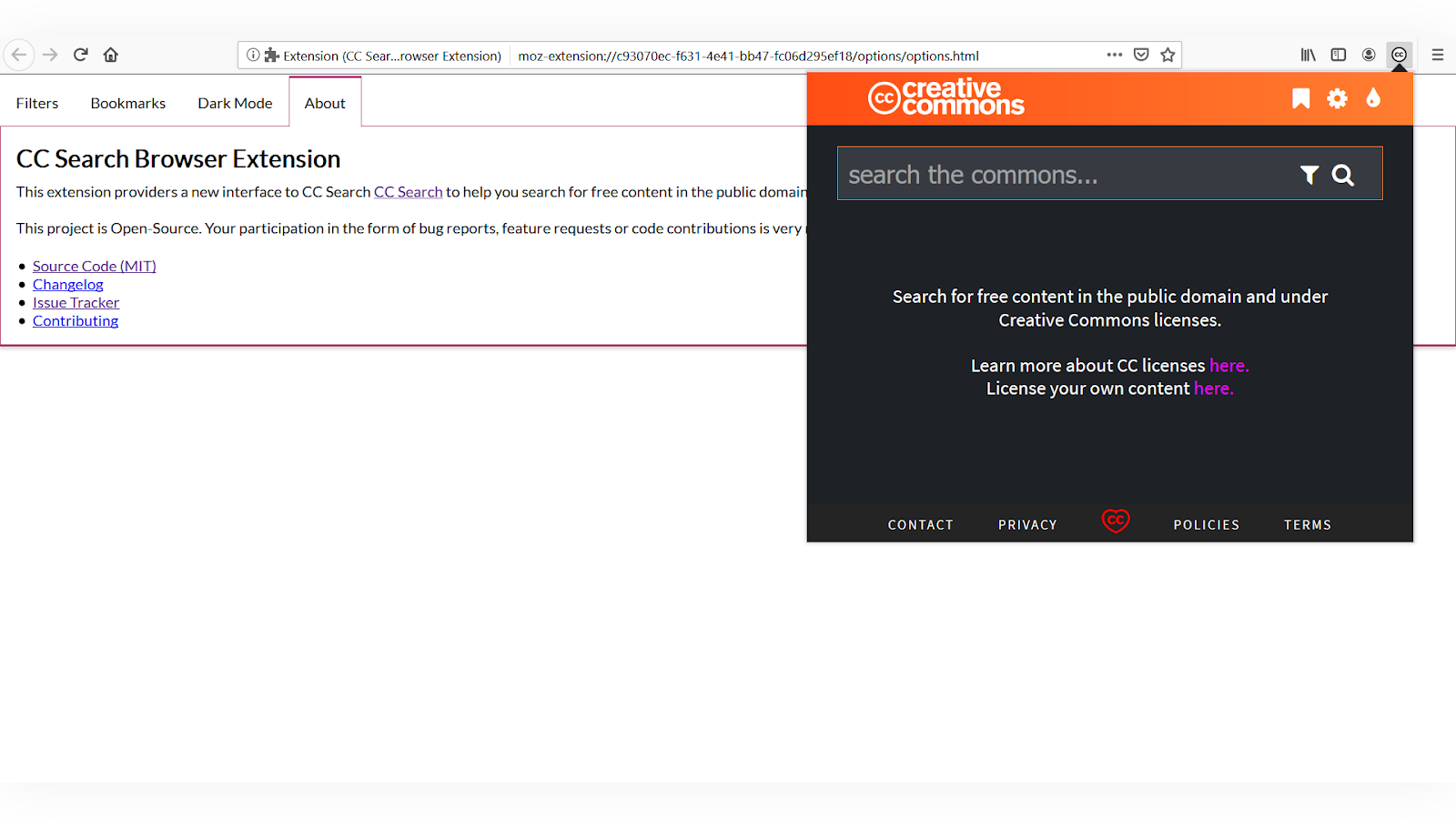
- Sync your custom settings and bookmarks across devices
Chrome and Firefox have a built-in feature that syncs browser settings and preferences across your logged-in devices. The extension leverages this feature to sync your custom settings and bookmarks. This will make your experience more pleasant and familiar.
The extension also has a dark mode that you can toggle “on” by clicking the icon in the header. This reduces screen glare and battery consumption. You can set the dark mode as default in the “Options” page.
Future plans and development
- Find and fix bugs
- Add a review and feedback tab on the “Options” page
- Integrate Vocabulary into the extension
- Develop usability enhancements
- Remove infinite scrolling and replace it with pagination or voluntary loading
- Add search syntax for better specificity of results and a search syntax guide
- Make the code more modular and add more tests
- Port the features of the CC Search web application that are relevant in the context of the browser plugin
Installation
The latest version of the extension is available for installation via Mozilla Firefox, Google Chrome, and Opera.
Join the community
Community contribution and feedback is an essential part of the development process, so we encourage you to contact us if you have feedback or a specific suggestion. This is an open-source project, you can contribute in the form of bug reports, feature requests, or code contributions.
To install the development version of the extension, read the installation guide on Github.
Finally, come and tell us about your experience on the Creative Commons Slack via the slack channel: #cc-dev-browser-extension.
The post Introducing the CC Search Browser Extension appeared first on Creative Commons.
